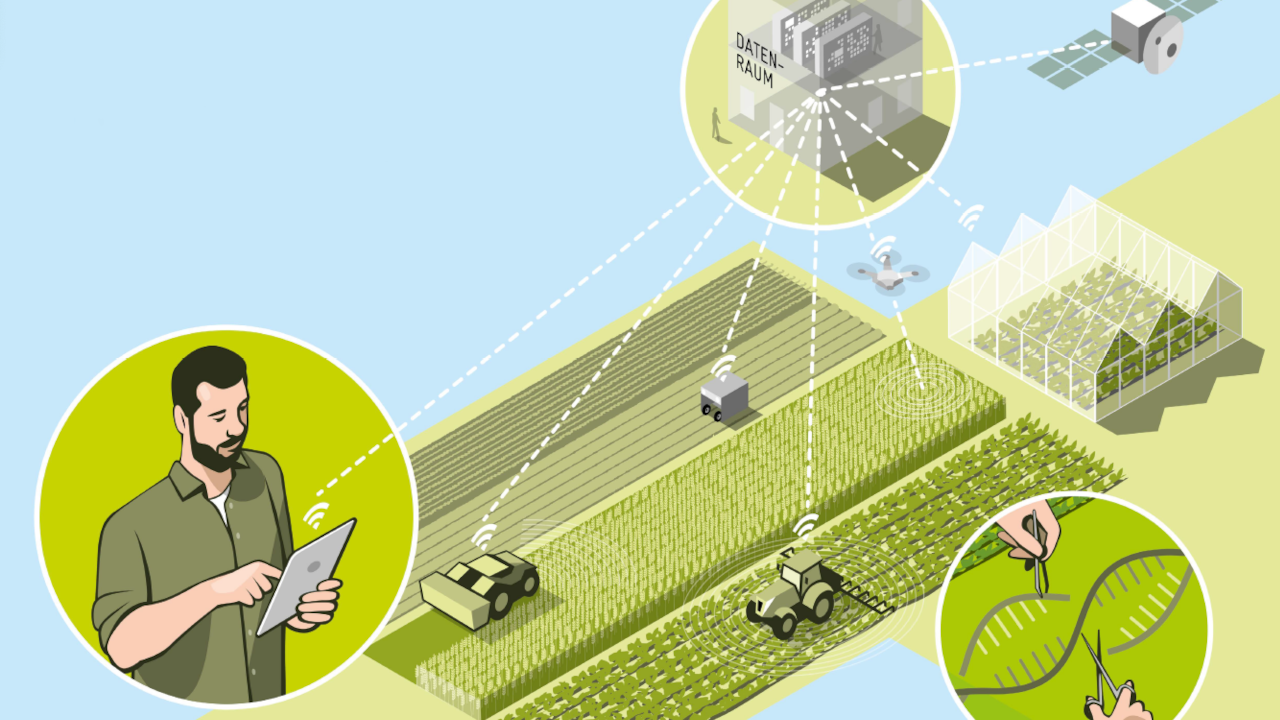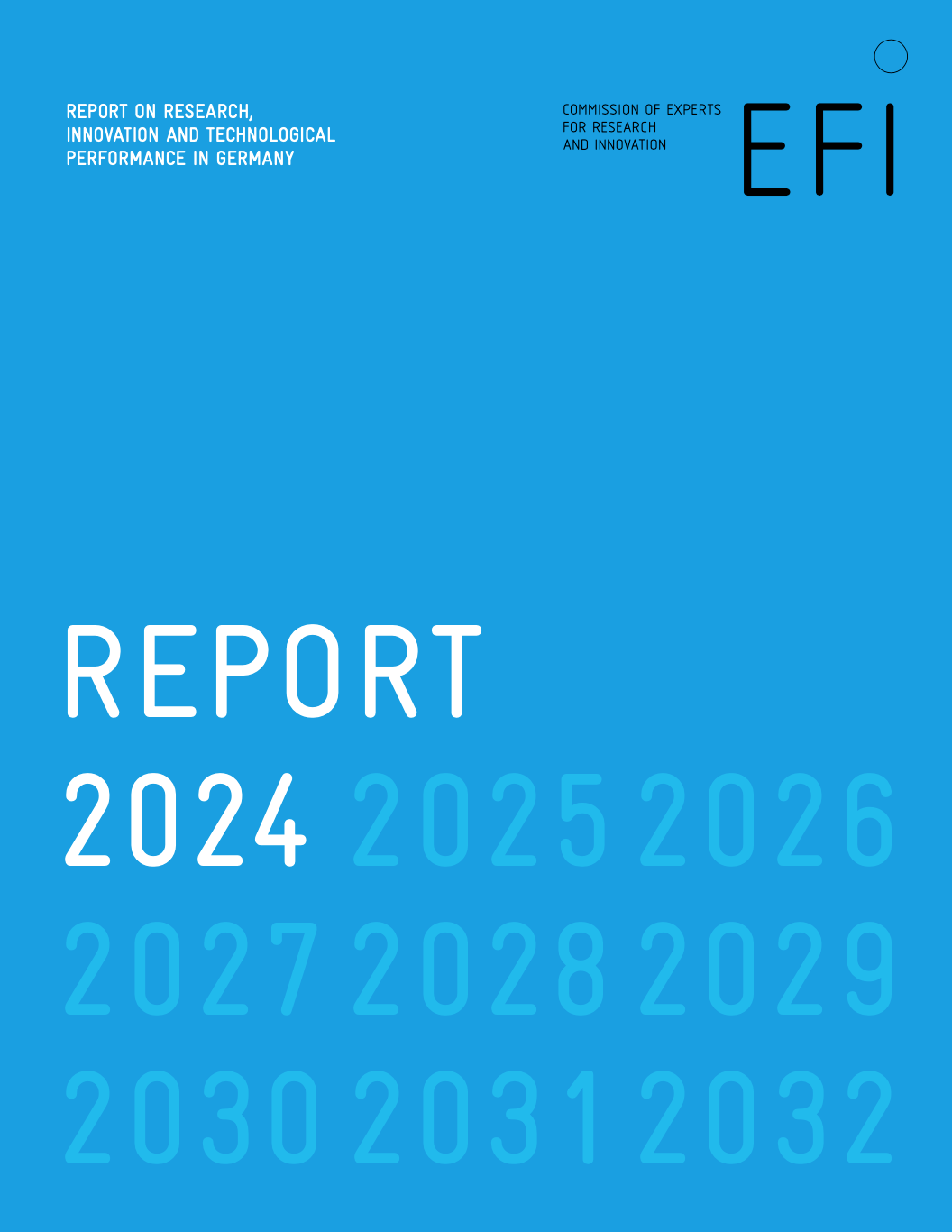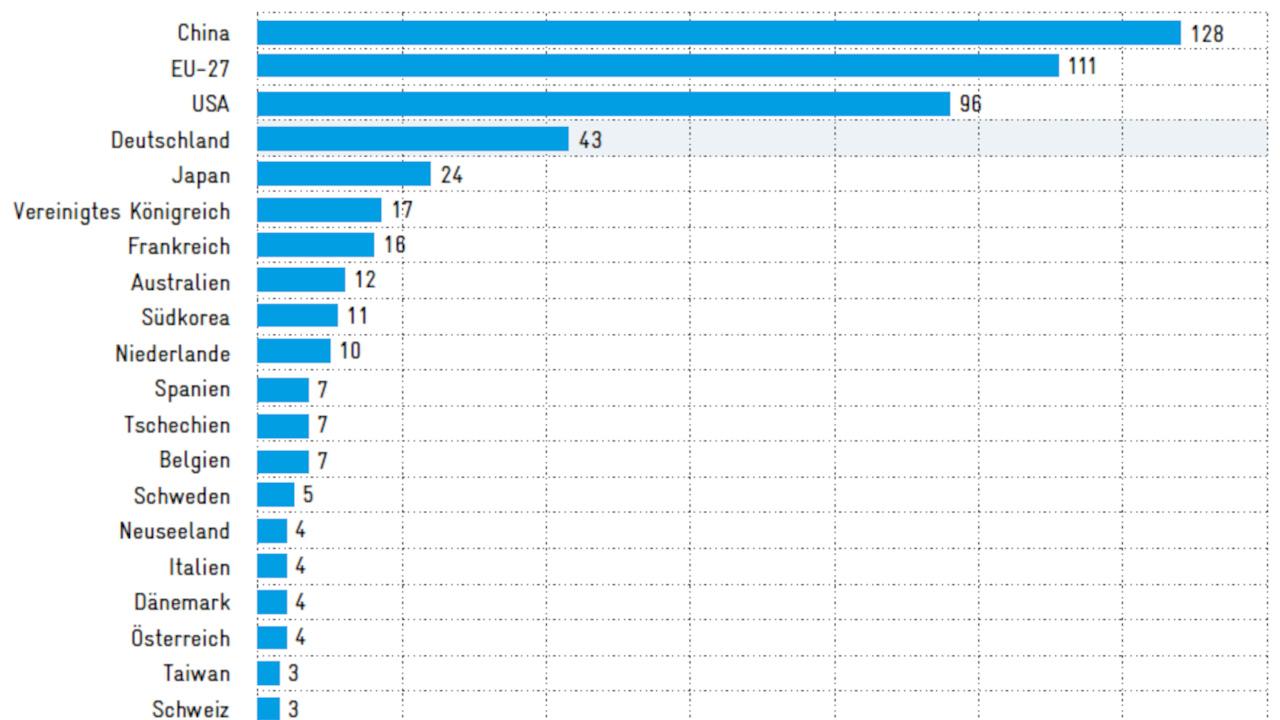EFI: Making greater use of the potential of new technologies in crop production
In its annual report, the Commission of Experts for Research and Innovation (EFI) focused on new technologies for sustainable agriculture, among other things. The most important points at a glance.

The EFI consists of six scientists who have special knowledge and experience in the field of innovation research and are internationally recognized in the scientific field. Once a year, they submit a report to the Federal Government on research, innovation and Germany's technological performance. In addition to recommendations for action for national research and innovation policy, the report focuses on several key topics. At the end of February, the EFI presented its latest report to Federal Chancellor Olaf Scholz.
One of the four key topics this year: "New technologies for sustainable agriculture". In their analysis, the experts focused on structural change in crop farming in their report. In particular, they shed light on the use of digital and smart technologies as well as green genetic engineering methods.
Advancing the transformation of agriculture
Professor Till Requate from Kiel University and member of the expert commission explains: " In the future, agriculture will have to produce larger quantities of food with less environmentally harmful inputs such as pesticides and fertilizers. At the same time, land areas are shrinking and climate conditions are changing. In the new EFI report, we show that the use of precision technologies and smart farming as well as green genetic engineering products can help to deal with these diverse challenges and thus advance the transformation of agriculture."
Potential of new precision technologies
Digital and smart technologies can be used in agriculture, for example, to apply inputs more precisely and thus save on pesticides and fertilizers. Through these savings, precision technologies also help to reduce the environmental impact of agriculture.
The EFI team based its analysis on a non-representative survey, among other things. Around 41% of the participating farms and contractors stated that they already use farm management systems and decision support systems. Around 37% stated that they use digitally supported agricultural machinery. "However, there are still hurdles in the way of widespread use of digital and smart technologies," explains Professor Irene Bertschek from ZEW Mannheim.
These hurdles include the high acquisition costs of precision technologies and the fact that the use of pesticides and fertilizers is comparatively cheap, but at the same time the negative environmental effects are not sufficiently taken into account. "In order for new, environmentally friendly precision technologies to be used more frequently, a tax on pesticides and fertilizers is needed," demands Professor Uwe Cantner from the University of Jena and chairman of the expert commission.
Other obstacles include compatibility problems between products from different manufacturers and inadequate infrastructures for networking and the collection and use of data. "In order to fully exploit the potential of digital and smart technologies, a Germany-wide, standardized data space for agriculture should be created," Cantner continues.

EFI report 2024
Report on research, innovation and technological performance in Germany
Ed.: Commission of Experts for Research and Innovation (EFI), Berlin, 2024
Click here to download the PDF
(full report only available in German)
Click here for the EFI website
CRISPR publications and patents analyzed
As a further field of technology for sustainable agriculture, the EFI examined the potential of new breeding techniques in plant breeding.
Green genetic engineering can be used to adapt crops so that they are more climate-resilient, more nutritious and richer in nutrients and require less use of pesticides and fertilizers. Developments in genome editing in particular - for example with the CRISPR-Cas gene scissors - make it possible to precisely implement such adaptations. Green genetic engineering could therefore be used to contribute to the goals of the Green Deal, for example.
Based on a publication and patent analysis, the EFI examined how research and innovation activities in the use of CRISPR in the field of crops have developed and where Germany and the EU stand in an international comparison. Although China is clearly ahead in terms of the number of CRISPR publications, followed by the USA, publications from Germany are in third place, albeit at a considerable distance from the top. A similar pattern can be seen for patents. Here too, global activities are dominated by China and the USA.
Number of CRISPR publications in top journals in the field of crops 2012-2022 for selected countries

Outdated legal framework
"In Germany and the EU, the potential remains untapped due to an outdated and inconsistent legal framework that is not scientifically sound," explains Bertschek.
This legal framework not only restricts research in the biotechnology sector, but also the competitiveness of agricultural production in the EU. "For this reason, the current legal framework must be revised and regulation independent of the breeding process must be established, as no risks inherent to the process can be identified," emphasizes Cantner.
The EFI therefore recommends that the German government approve the proposal submitted by the EU Commission for the differentiated regulation of genome-edited plants in the European Council. The committee also advocates the approval of category 1 plants (NGT-1 plants) bred using new genomic techniques for organic farming. In addition, the EFI suggests that the complex field of patent and plant variety protection should be monitored and evaluated in studies.
Better educating the public
"Another major obstacle to the use of green genetic engineering is the low level of acceptance among the general public, who must therefore be provided with scientifically sound information on green genetic engineering. Such a communication strategy by the German government should also be reflected in consistent legislation," explains Till Requate.
pg


